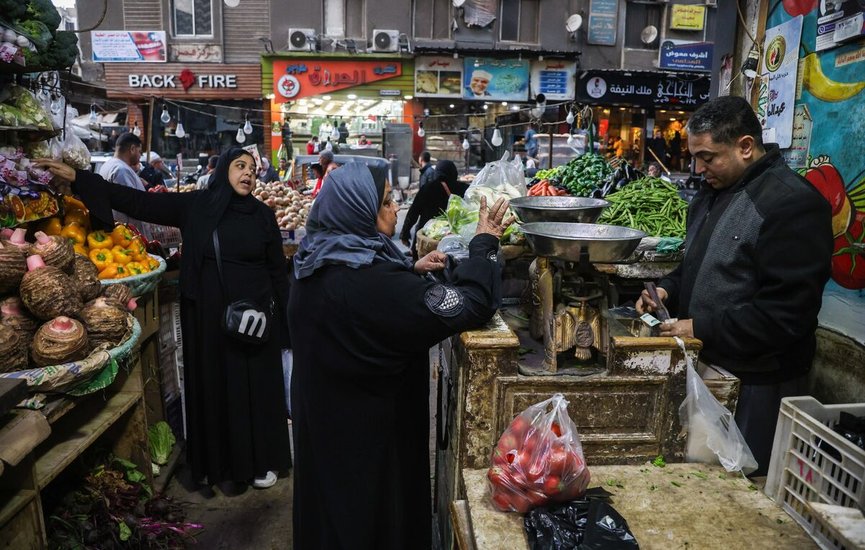Egypt’s inflation outlook is showing signs of cautious optimism as the Central Agency for Public Mobilisation and Statistics (CAPMAS) reported a 0.6% monthly decline in the national Consumer Price Index (CPI), which reached 256.5 points in July. This easing was largely driven by falling food prices, with notable decreases in meat and poultry (-4.9%), fruits (-11%), and vegetables (-7%). Personal effects also saw a modest 0.5% reduction, contributing to the overall downward trend.
Despite the general decline, inflationary pressures persist in several categories. Cereals and bread rose by 0.4%, fish and seafood by 0.2%, and dairy products, including cheese and eggs, edged up by 0.2%. Oils and fats increased slightly by 0.1%, while sugar, coffee, tea, and cocoa each climbed by 0.2%. Non-alcoholic beverages, such as mineral water and natural juices, rose by 0.8%, but the most dramatic increases were seen in alcoholic beverages (+5.3%) and tobacco (+7.8%), reflecting shifting consumer costs.
Beyond food, other sectors also experienced price hikes. Fabric prices increased by 0.4%, ready-made garments by 0.3%, and footwear by 0.2%. Housing-related expenses rose as well, with actual rents up by 0.8% and home maintenance costs jumping by 1.7%. Household goods saw notable increases, including furnishings (+2.6%), appliances (+0.6%), and tableware and utensils (+1.2%). Service sectors were affected too, with outpatient services rising by 0.8% and hospital services by 1.1%. Transportation costs climbed by 0.3%, and hotel services surged by 1.5%, indicating broader inflationary trends across essential and discretionary spending.
On a national scale, annual inflation eased to 13.1% in July from 14.4% in June, offering a measure of relief amid ongoing economic adjustments. The Central Bank of Egypt (CBE) anticipates inflation to stabilize near current levels for the remainder of 2025, with a gradual decline expected through 2026. The bank has set a target of 7% (±2%) by the end of 2026, reflecting its commitment to long-term price stability. Core inflation, which excludes volatile items like food and energy, recorded a monthly rate of -0.3% in July 2025, compared to -0.5% a year earlier. Annually, core inflation edged up slightly to 11.6% from 11.4% in June.
In its Q2 2025 Monetary Policy Report, the CBE revised its inflation projections, now expecting rates of 15–16% for 2025 and 11–12% for 2026—a marked improvement from the 28.3% peak in 2024. However, the bank cautioned that risks remain, including slower adjustments in service prices and potential impacts from fiscal consolidation measures. Since 2017, the CBE has operated under a flexible inflation-targeting framework designed to stabilize price expectations and mitigate supply shocks. In December 2024, it reaffirmed its inflation targets of 7% (±2%) for Q4 2026 and 5% (±2%) for Q4 2028.
The Monetary Policy Committee, which convenes eight times annually, plays a pivotal role in guiding inflation strategy through interest rate adjustments and other tools such as deposit and lending rates, reserve requirements, and auctions. As Egypt continues to navigate complex economic challenges, the latest data signals a promising shift toward stabilization, though persistent price pressures in key sectors suggest that the journey to full recovery will require sustained policy vigilance and adaptive measures.
